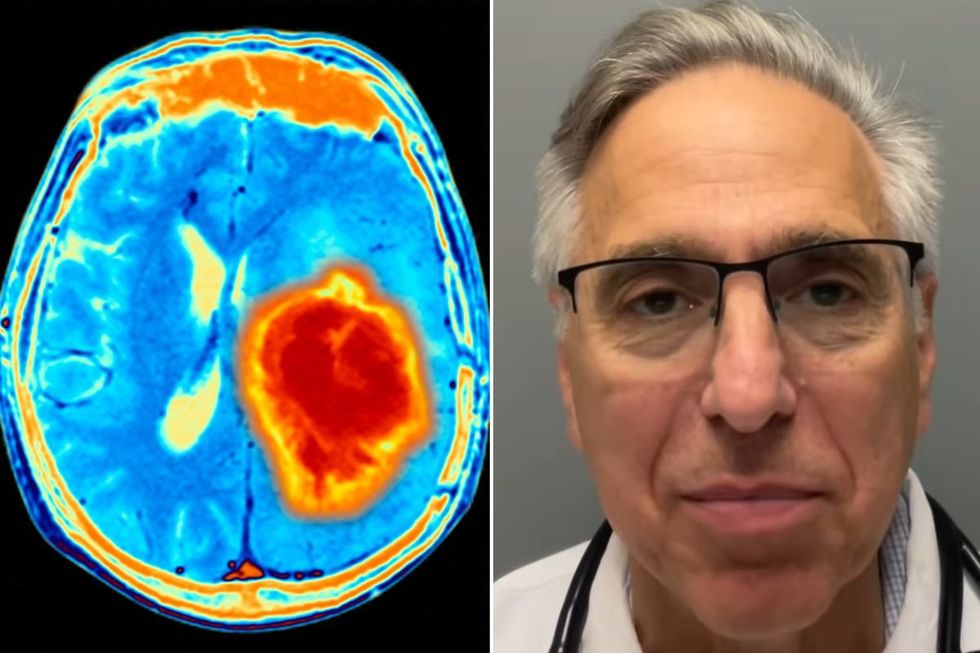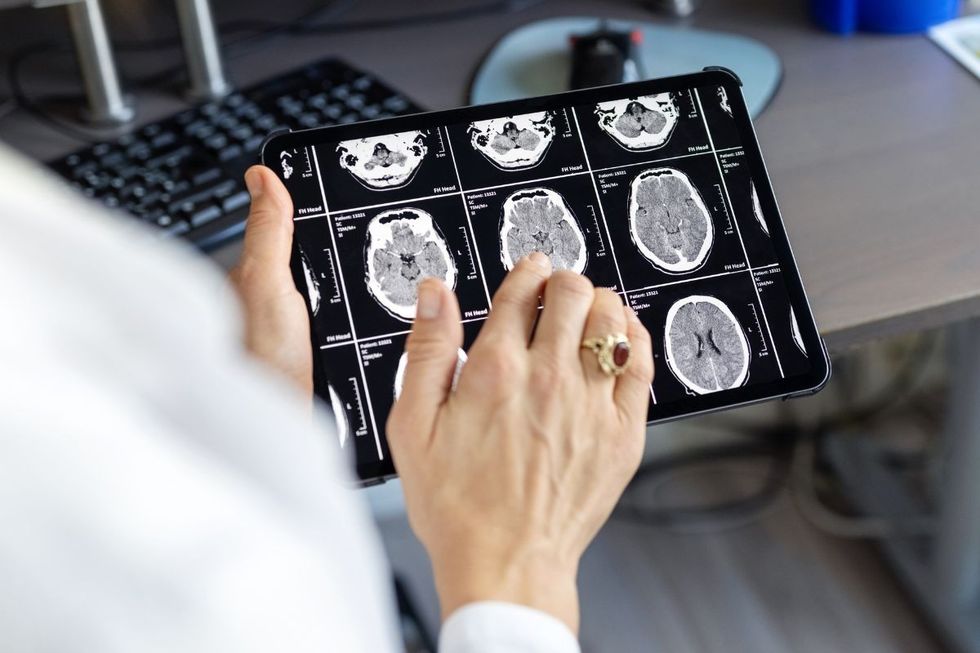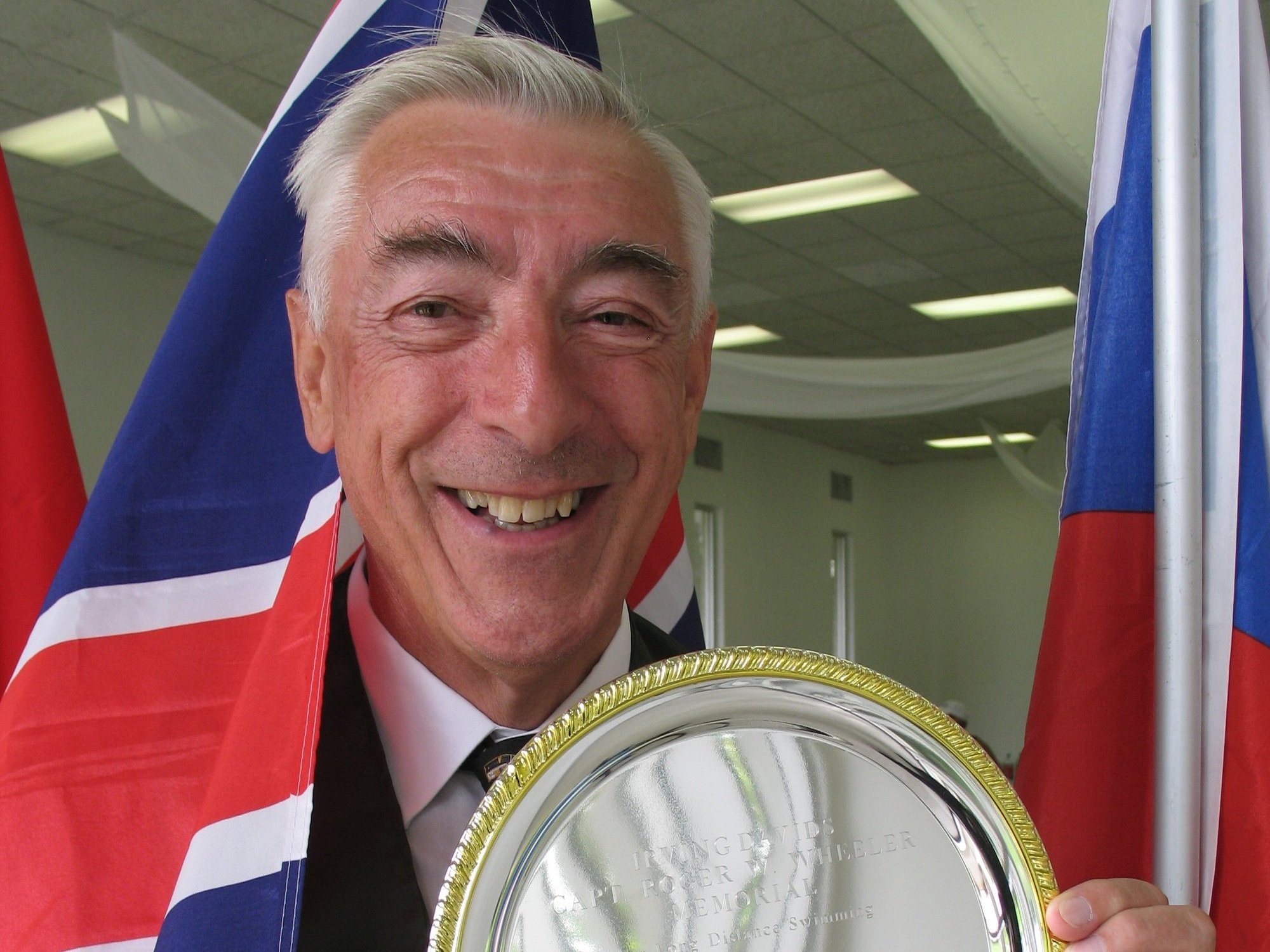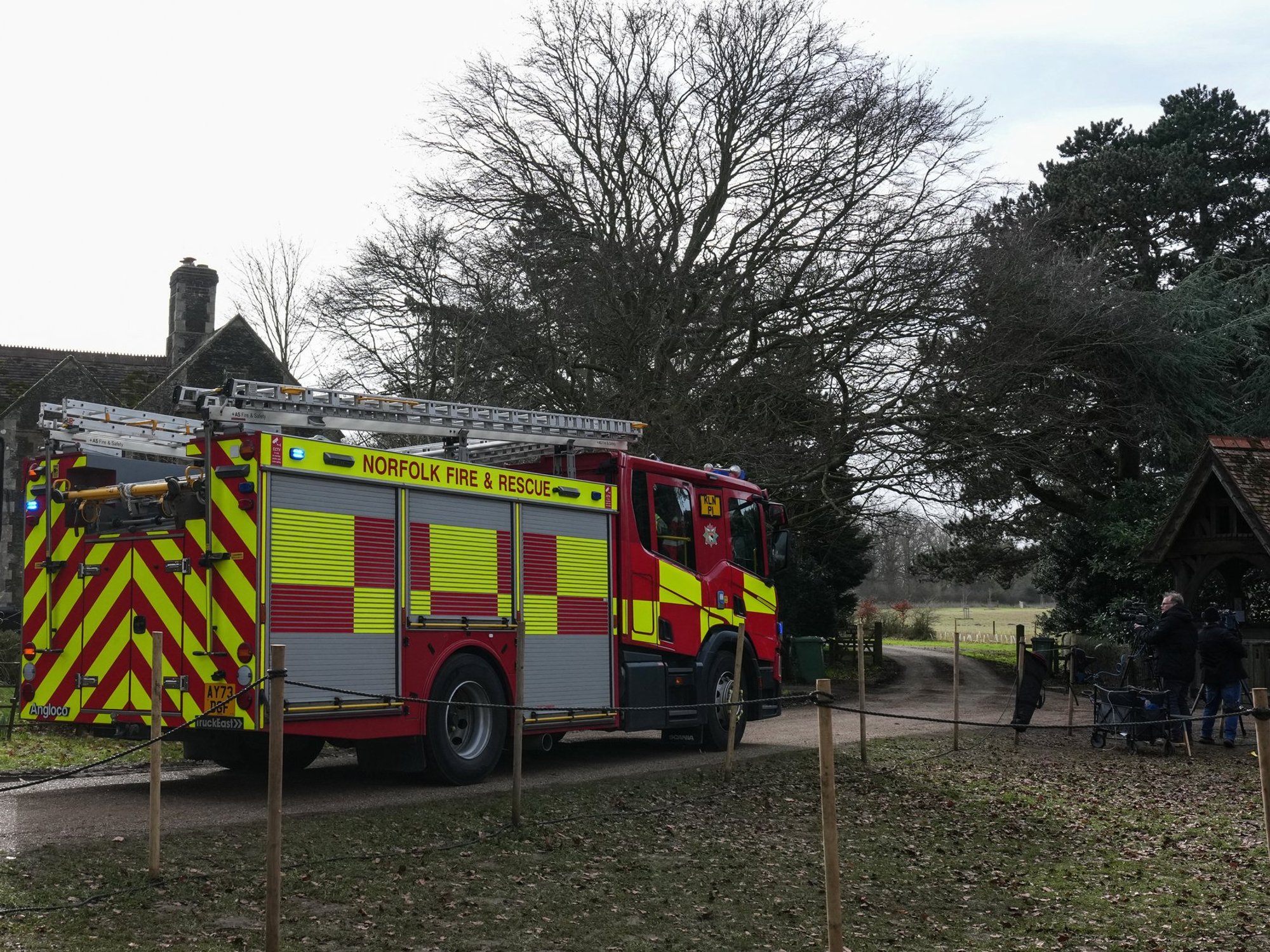Heart specialist warns everyday habits could be quietly raising your risk of aneurysm - 'I see them over and over again'

WATCH NOW: NHS Scotland launches AI trial to help detect lung cancer and strokes in X-rays
|GBN

Many of the risk factors for suffering a brain aneurysm are entirely avoidable, the cardiologist explained
Don't Miss
Most Read
A prominent heart specialist has issued a stark warning about common daily activities that could secretly increase your risk of developing a potentially fatal aortic aneurysm.
Dr Evan Levine, a certified heart specialist based in Scarsdale, New York, posted a viral Instagram video outlining ten everyday behaviours he frequently observes leading to this dangerous condition.
The aorta is your body's primary artery, and when it develops a balloon-like swelling, it can rupture without warning, causing catastrophic internal bleeding and often instant death.
What's particularly alarming is that many of the risky behaviours Dr Levine identified are activities people wouldn't normally consider dangerous - from workout habits to common medicines.
TRENDING
Stories
Videos
Your Say

Certain antibiotics present a hidden risk to the brain
|GETTY / TIKTOK
"These are all things I see over and over again in my patients," the doctor shared with his 92,000 Instagram followers.
Though genetics can influence aneurysm risk, Dr Levine explained that many dangers are entirely avoidable - with cocaine sitting firmly at the top of his list.
"[It's] just jet fuel. It's a drug to drive the aorta larger [and] it sickens you - don't ever do it," he warned in his video.
The drug causes severe blood pressure spikes that place enormous stress on arterial walls, even with occasional use.
Smoking isn't much better, with Dr Levine calling it "cocaine light" due to how it elevates blood pressure, harms arteries and leads to cholesterol accumulation.
For those who've made the switch to vaping or e-cigarettes, thinking they're safer, his advice remains unchanged - they're equally harmful to your cardiovascular system.
Even activities that seem beneficial can pose unexpected dangers. Extreme weightlifting that involves screaming while hoisting massive weights can cause blood pressure to surge dangerously, putting severe strain on the aorta, especially for older fitness enthusiasts.
"I'm not talking about good quality resistance exercises," Dr Levine explained, but rather those pushing themselves to extremes with 400-pound lifts.
Certain antibiotics present another hidden threat. Fluoroquinolone medications like ciprofloxacin and levofloxacin can damage blood vessel walls, making them more susceptible to developing aneurysms.
"Thank you for bringing up fluoroquinolone antibiotics," one follower responded. "Most doctors, let alone patients, don't even know how dangerous they are and that they should only be used as a last resort."
Dr Levine is particularly worried about patients who discontinue vital medications after encountering health advice on social media platforms.
He's noticed an increasing number of people arriving at cardiology appointments after suddenly stopping their statins or blood pressure medicines because of TikTok videos they've watched.
Statins work by limiting cholesterol production in the liver while boosting its capacity to clear cholesterol from the bloodstream.
Abandoning these medications "will increase your cholesterol, inflammation and increase your risk of aneurysms," he cautioned.
He's equally concerned about patients refusing blood pressure treatments due to outdated beliefs that rising pressure is a natural part of ageing.
"That was thought about 60 years ago, [and] it's wrong," he stated firmly.
Dr Levine also highlights how certain lifestyle choices gradually damage cardiovascular health. Excessive alcohol consumption elevates blood pressure and triglycerides, raising aneurysm risk, particularly in the brain.
LATEST DEVELOPMENTS

A diet heavy in processed foods could increase the danger to the brain
|GETTY
A diet heavy in processed foods, packed with salt and calories, leads to weight gain and high blood pressure, further increasing the danger.
Perhaps most surprisingly, insufficient fibre intake can contribute too - the resulting constipation and straining during toilet visits can heighten aneurysm risk and potentially trigger ruptures.
One follower shared her frightening experience: "I was completely perfectly healthy with zero health conditions, and I had an abdominal aortic aneurysm rupture. It can happen to anyone at any time."
Dr Levine ultimately stressed that aneurysm-related illness is frequently preventable when people prioritise their heart health.
Our Standards: The GB News Editorial Charter










